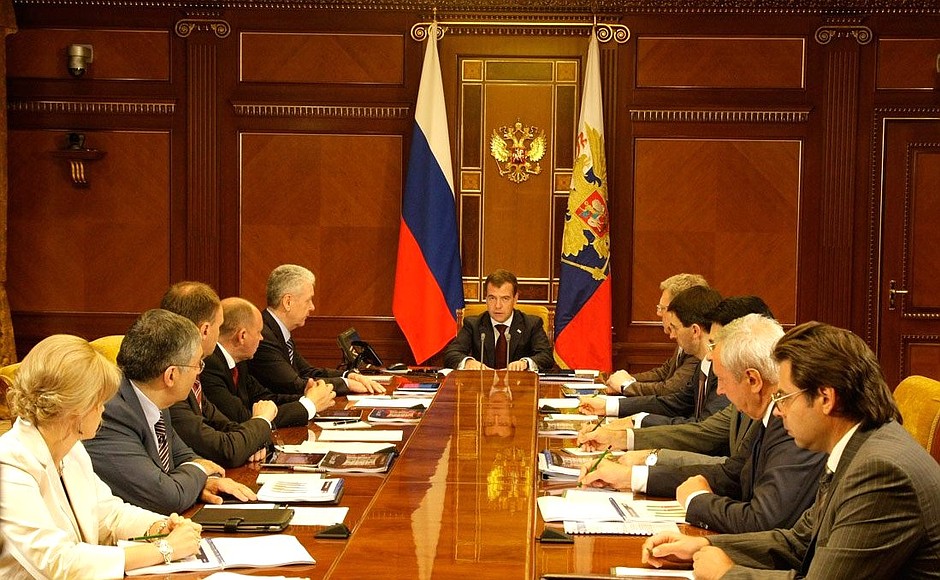
Participants in the meeting included Deputy Prime Minister and Government Chief of Staff Sergei Sobyanin, Deputy Prime Minister and Finance Minister Alexei Kudrin, Telecommunications and Mass Communications Minister Igor Shchegolev, Head of the Federal Agency for Press and Mass Communications Mikhail Seslavinsky, and heads of major state media outlets, including the National Television and Radio Broadcasting Company (VGTRK), the Voice of Russia Russian State Radio Broadcasting Company, the Ostankino Television Technical Centre, ITAR-TASS and RIA Novosti news agencies.
* * *
President of Russia Dmitry Medvedev: We have agreed to discuss issues pertaining to the development of mass media. Any development requires money, first and foremost, and there is never enough money, so we should certainly assess both the financial and the substantive advancements of the Russian media in the upcoming years.
Yesterday, I held a meeting of the Presidential Council for the Development of the Information Society and there we also discussed modernisation of the national economy and implementation of modern technologies, including media and information technologies.
Progress of the media is important for us. Suffice it to say, as of July 8 this year, there were 93,532 media outlets registered in Russia – almost one hundred thousand which is a significant force. Moreover, the vast majority of these media (over 90 percent) are private and thus rumours that all the media in our country are state-owned are somewhat exaggerated.
The situation is exactly the opposite, but we do have a number of respected media that are state-owned (as is the case in other nations as well). Therefore today we are to discuss the ways state-owned media should be financed and the ways private media may be supported by both the government and the individuals. This is not only a challenge for the whole country, all of the Russian Federation, but for the regions, as well as for the civil society and business community and any possible financing options must be considered.
An issue most essential for our country, given its size, is overcoming the technical, digital, and the so-called content divide between Russian media and leading global media. To be quite frank, we must also overcome the gap between the national media that are headquartered in Moscow and some other major cities of our country, and the local media.
Here, too, the situation is not that simple. Sometimes, the divide between our national and local media is even greater than the technological gap between major Russian and foreign media, let alone the content gap.
We should also review technologies and certain other issues that I am sure are now becoming increasingly relevant. Developing electronic media remains our prime task same as Internet development, which I outlined yesterday at the Council meeting.
The overall goal is a large-scale implementation of broadband Internet within the next few years and granting access to it to 90 percent of our people.
Another goal is digitisation of TV channels and media we have today, including broadcasts in high definition (HD) and, eventually, in 3D format, which is becoming increasingly popular. I don’t know how good it is for our eyes, but it is quite impressive.
All of this represents a major challenge for the country, and that is precisely why we are meeting today.
<…>